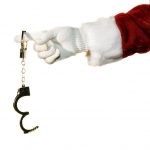What Are The Penalties For Driving While Suspended in NSW?

Having your driving licence suspended can cause a lot of inconvenience, especially if you need to drive to work, or to drop your children off at school or need a licence for work purposes.
Even the simplest of everyday things, such as grocery shopping or catching up with friends, can be extremely difficult if you’re not allowed to get behind the wheel.
If you have been suspended, you may be tempted to drive regardless, but it is important to be aware of the possible consequences if you are caught driving while suspended in NSW.
There are a number of different circumstances that can lead to your licence being suspended, including the accumulation of demerit points, an on-the-spot police suspension, a court issued suspension, and non-payment of fines.
If Roads and Maritime Services (RMS) has suspended your licence on the basis of demerit points, you will receive notification in the mail.
It is important to keep the RMS updated with your address details.
Failing to update your address is not considered a valid reason for driving while suspended.
If your licence is suspended as a result of being pulled over for mid or high range drink driving or another traffic offence, the magistrate or judge will advise you during sentencing of any period of disqualification.
A disqualification can only be imposed by the court whereas a suspension can be due to demerit points or by speeding by over 30kp/h or by police charging you with a mid or high range drink driving offence.
It is important to take note of the exact length of the suspension or disqualification, and the date you will be allowed to drive again, so that you don’t make a mistake that can lead to further suspension or disqualification.
Penalties for driving without a valid licence
The disqualification periods for driving without a valid licence were reduced on 28 October 2017, after research found that lengthy disqualifications do little to deter reoffending, and can even be socially and economically counterproductive to society.
The penalties can be summarised as follows:
| Offence | Penalty where it’s your first major traffic offence in the past 5 years | Penalty where it’s your second or more major traffic offence in the past 5 years |
| Driving whilst suspended, disqualified, cancelled or refused | – 6 months disqualification which may be reduced by the court to 3 months,
– Maximum fine of $3,300, and – Maximum prison sentence of 6 months |
– 12 months disqualification which may be reduced by the court to 6 months,
– Maximum fine of $5,500, and – Maximum prison sentence of 12 months |
| Driving whilst suspended due to a fine default | – 3 months disqualification which can be reduced by a court to 1 month, and
– Maximum fine of $3,300 |
– 12 months disqualification which can be reduced by a court to 3 months,
– Maximum fine of $5,500, and – Maximum prison sentence of 6 months |
| Driving whilst unlicensed (never licensed) | – Maximum fine of $2,200 | – 12 months disqualification which can be reduced by a court to 3 months,
– Maximum fine of $3,300, and – Maximum prison sentence of 6 months. |
Impact of a conviction
If you are found driving without a valid licence, you can end up with a criminal conviction on your record, which can have far ranging implications for your future, unless your criminal lawyer is able to convince the court not to record a conviction against your name. If your lawyer is able to do that, you will also have no licence disqualification, fine or any other penalty.
A clean criminal record forms part of the criteria for many occupations, particularly in nursing, childcare or the security industry.
Convictions for driving while suspended can therefore put your job or career prospects in jeopardy, and can even make it difficult to travel or migrate to certain countries.
If you have been charged with a traffic offence, such as driving while suspended in NSW, it is a good idea to seek advice from an experienced, specialist traffic lawyer who is experienced in successfully handling traffic cases.
Having a good lawyer to argue your case can help to reduce the chances of you receiving a severe penalty, and a criminal conviction, which can affect your life well into the future.






